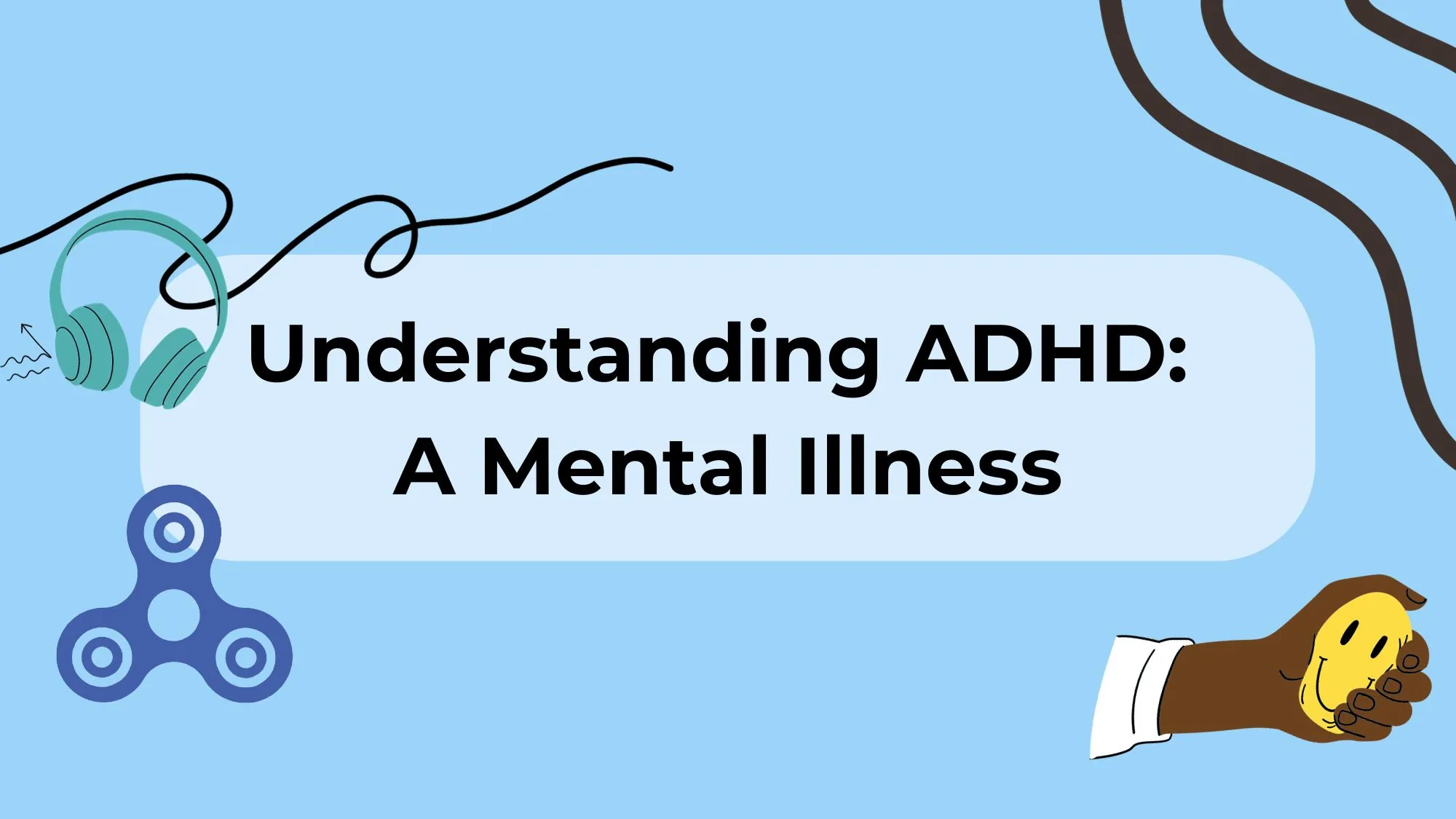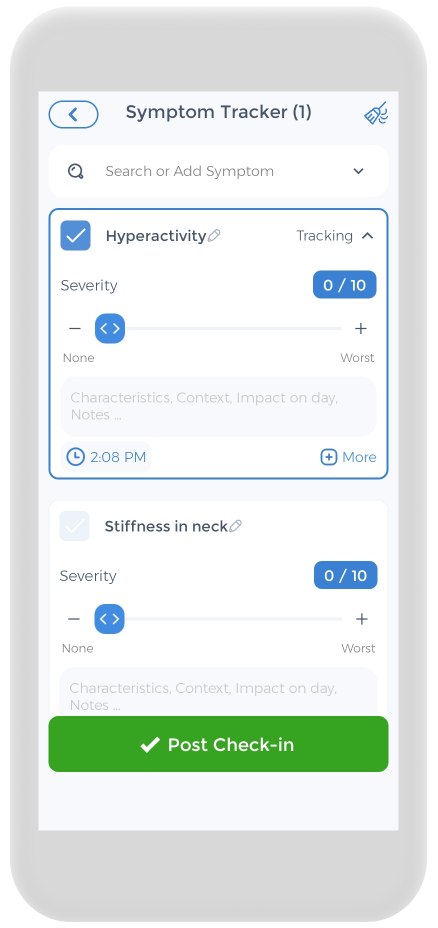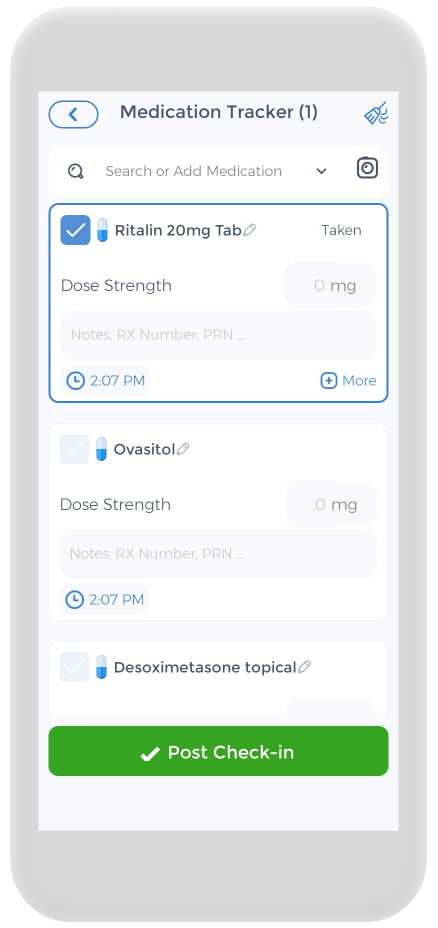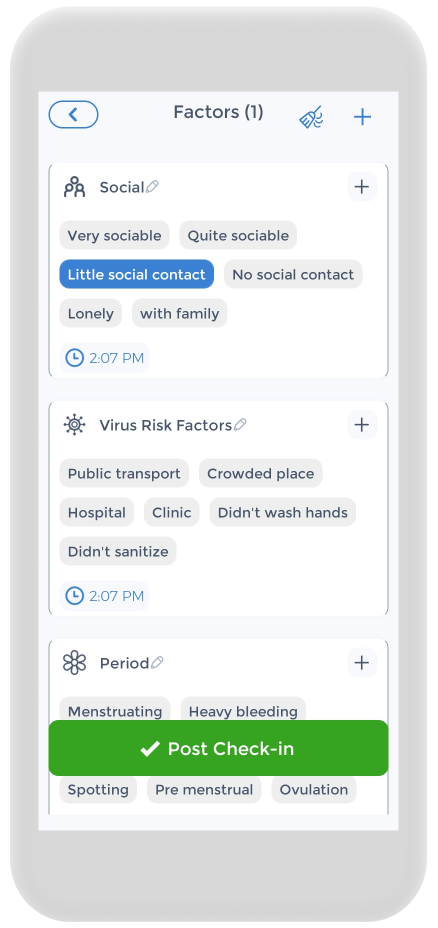
Attention deficit hyperactivity disorder (ADHD) is a complex mental illness that affects individuals of all ages. It is characterized by persistent patterns of inattention, hyperactivity, and impulsivity that can significantly impact daily life. This article aims to provide a comprehensive understanding of ADHD, covering its definition, symptoms, diagnosis, treatment options, and the impact it has on mental health and daily functioning.[1][2][3]
What is ADHD?
ADHD, which stands for Attention-Deficit/Hyperactivity Disorder, is a neurodevelopmental disorder that typically begins in childhood and continues into adulthood. It is characterized by a persistent pattern of inattentiveness, hyperactivity, and impulsivity that interferes with functioning or development across multiple settings. Individuals with ADHD often struggle with paying attention, staying focused, and controlling impulsive behaviors. They may also exhibit excessive levels of physical and mental activity, making it difficult for them to sit still or complete tasks.
ADHD is a complex condition that affects the brain’s executive functions, which are responsible for planning, organizing, and managing tasks. It is estimated that around 5-10% of children and 2-5% of adults worldwide have ADHD. However, it is important to note that these numbers may vary across different populations and regions.
Defining ADHD
The Diagnostic and Statistical Manual of Mental Disorders (DSM-5), which is widely used by healthcare professionals, defines ADHD as a persistent pattern of inattentiveness, hyperactivity, and impulsivity that interferes with functioning or development across multiple settings. To meet the diagnostic criteria, symptoms must be present before the age of 12 and occur in more than one setting, such as school, work, or social environments.
ADHD is classified into three subtypes: predominantly inattentive, predominantly hyperactive-impulsive, and combined presentation. The predominantly inattentive subtype is characterized by difficulties with sustaining attention, being easily distracted, and appearing forgetful. The predominantly hyperactive-impulsive subtype is marked by excessive levels of physical activity, difficulty staying seated, and impulsive behaviors. The combined subtype involves a combination of both predominantly inattentive presentation and hyperactive-impulsive symptoms.
Common Symptoms of ADHD
ADHD manifests differently in individuals, and symptoms can vary in severity. Inattentiveness may be observed as difficulty sustaining focus, being easily distracted, or making careless mistakes. Individuals with ADHD may struggle with tasks that require sustained mental effort, following instructions, or completing assignments. Hyperactivity can be seen as excessive talking, restlessness, or difficulty engaging in quiet activities. Impulsivity may present as interrupting others, difficulty waiting for turns, or acting without thinking.
observed as difficulty sustaining focus, being easily distracted, or making careless mistakes. Individuals with ADHD may struggle with tasks that require sustained mental effort, following instructions, or completing assignments. Hyperactivity can be seen as excessive talking, restlessness, or difficulty engaging in quiet activities. Impulsivity may present as interrupting others, difficulty waiting for turns, or acting without thinking.
It is important to note that the symptoms of ADHD can significantly impact an individual’s academic, occupational, and social functioning. Children with ADHD may face challenges in school, such as difficulties with paying attention, completing assignments, or staying on task. Adults with ADHD may experience difficulties in the workplace, such as problems with time management, organization, or meeting deadlines. Additionally, ADHD can affect relationships, as individuals may struggle with listening, following conversations, or maintaining focus during social interactions.
ADHD in Children vs. Adults
The presentation of ADHD can differ between children and adults. Children may exhibit more hyperactive and impulsive behaviors, while many adults may experience more difficulties with inattention and organization. In some cases, individuals with ADHD may outgrow certain symptoms as they mature, but for others and many adults, these symptoms persist into adulthood.
Recognizing ADHD in adults can be challenging, as the symptoms may be attributed to other factors such as stress or anxiety. Adults with ADHD may struggle with maintaining focus at work, organizing tasks, or managing time effectively. They may also experience difficulties with impulse control, leading to impulsive decisions or actions that can have negative consequences.
It is important for individuals with ADHD to receive appropriate diagnosis and treatment. ADHD can be managed through a combination of strategies, including medication, behavioral therapy, and support from healthcare professionals, educators, and family members. With the right support, individuals with ADHD can learn to manage their symptoms and thrive in various aspects of their lives.[4]
The Science Behind ADHD
The exact cause of Attention Deficit Hyperactivity Disorder (ADHD) is not yet fully understood [1]. However, research suggests that it is a complex interplay of genetic, environmental, and neurobiological factors that contribute to its development.
ADHD is a neurodevelopmental disorder that affects both children and adults. It is characterized by persistent patterns of inattention, hyperactivity, and impulsivity that can interfere with daily functioning and social interactions.
The Role of Neurotransmitters
Neurotransmitters, such as dopamine and norepinephrine, play a critical role in brain functioning and are the brain chemicals thought to be involved in ADHD. These chemical messengers transmit signals between nerve cells, allowing for communication within the brain and throughout the body.
In individuals with ADHD, abnormalities in the pathways related to these neurotransmitters may contribute to the symptoms observed. For example in many children, a deficiency in dopamine has been linked to difficulties with attention and focus, while dysregulation of norepinephrine can lead to impulsivity and hyperactivity.
Genetic Factors in ADHD
ADHD has a strong genetic component, with studies suggesting that it tends to run in families. Genetic variations related to dopamine receptors and transporters have been implicated in the development of ADHD. These variations can affect the way neurotransmitters are processed and regulated in the brain.
However, it is important to note that genetics alone cannot fully account for the occurrence of ADHD. Environmental factors also play a significant role in its development. Researchers believe that a combination of genetic predisposition and environmental influences contribute to the manifestation of ADHD symptoms.
Environmental Influences on ADHD
Various environmental factors have been linked to ADHD. These include exposure to substances during pregnancy, such as tobacco smoke or alcohol. Maternal smoking during pregnancy, in particular, has been associated with an increased risk of ADHD in children.
Other factors, such as premature birth, low birth weight, and early exposure to lead, have also been identified as potential risk factors for developing ADHD. These environmental influences can disrupt normal brain development and contribute to the onset of the disorder.
In addition, certain parenting styles and family environments can also contribute to the manifestation of ADHD symptoms. Chaotic or stressful family environments, inconsistent discipline, and a lack of structure can exacerbate the challenges faced by individuals with ADHD.
It is worth noting that while these factors have been identified as potential contributors to ADHD, not all individuals with ADHD will have experienced them. The development of the disorder is complex and multifaceted, with a wide range of factors interacting to influence its onset and severity.[5][6][7]
Diagnosing ADHD
Accurate diagnosis of ADHD is crucial for effective management. Healthcare professionals, such as psychiatrists or pediatricians, use specific criteria to diagnose ADHD.
Diagnostic Criteria for ADHD
According to the DSM-5, the diagnostic criteria for ADHD include persistent patterns of inattention, hyperactivity, and impulsivity that interfere with daily life functioning. The symptoms must be present for at least six months and occur in more than one setting.
Common Diagnostic Tools and Tests
A comprehensive evaluation is required to assess and test for ADHD. This typically involves a detailed clinical interview, behavior rating scales, and observations from parents, teachers, or other caregivers. These assessments aim to gather information about the frequency, duration, and severity of symptoms, as well as any associated impairments.
Misdiagnosis and Overdiagnosis Issues
ADHD can be challenging to diagnose accurately due to the overlapping symptoms with other conditions such as anxiety, depression, or learning disabilities. Additionally, overdiagnosis of ADHD can occur, leading to unnecessary treatment interventions. Therefore, it is essential for healthcare professionals to conduct a thorough evaluation and consider other potential causes of the observed symptoms before making a diagnosis.[8][9][10][11]
Treating ADHD
Attention Deficit Hyperactivity Disorder (ADHD) is a neurodevelopmental disorder that affects both children and adults. While there is no cure for ADHD, various treatment options are available to manage symptoms and improve daily functioning.
Medication Treatments
 Stimulant medications, such as methylphenidate (Ritalin) or amphetamines (Adderall), are commonly prescribed to reduce ADHD symptoms [2].
Stimulant medications, such as methylphenidate (Ritalin) or amphetamines (Adderall), are commonly prescribed to reduce ADHD symptoms [2].
Getting the right dose can be tricky with any ADHD medication. If you’re taking Vyvanse, watching for signs your dose might be too high helps avoid side effects. Learning about adhd vyvanse dosage timing and effects makes a big difference in how well your treatment works.
These ADHD medications work by increasing levels of neurotransmitters in the brain, specifically dopamine and norepinephrine, improving focus and impulse control. Non-stimulant medications, such as atomoxetine (Strattera) or bupropion (Wellbutrin), may also be used in certain cases. These medications work differently by targeting other neurotransmitters and can be effective alternatives for individuals who cannot tolerate stimulant medications. However, medication treatment should always be carefully monitored and adjusted by a healthcare professional to ensure optimal benefits and minimize side effects.
It is important to note that medication is not a one-size-fits-all solution for ADHD treatment. Different individuals may respond differently to various medications, and finding the right medication and dosage may require some trial and error. Regular follow-up appointments with a healthcare professional are crucial to assess the effectiveness of the medication and make any necessary adjustments.
Behavioral Therapies
Behavioral therapies play a crucial role in the comprehensive treatment of ADHD. These therapies focus on modifying behavior, setting realistic goals, and enhancing self-control. Cognitive-behavioral therapy (CBT) is a commonly used approach that helps individuals with ADHD identify and change negative thought patterns and behaviors. By challenging and replacing negative thoughts with positive ones, individuals can develop coping strategies and improve problem-solving skills.
In addition to CBT, parent training programs are often recommended for families with children diagnosed with ADHD. These parenting skills and programs provide parents with the necessary tools and techniques to effectively manage their child’s behavior and create a supportive and structured environment at home. By learning behavioral management strategies, parents can help their children develop self-discipline, improve social skills, and succeed academically.
Lifestyle Changes and ADHD Management
Implementing certain lifestyle changes can also have a positive impact on ADHD symptoms [3]. Establishing routines and creating structured environments can help individuals with ADHD better manage their time and tasks. Breaking tasks into smaller, more manageable steps can also be beneficial, as it reduces feelings of overwhelm and improves focus.
Regular exercise has been shown to have numerous benefits for individuals with ADHD. Physical activity helps increase dopamine and norepinephrine levels in the brain, improving attention and reducing hyperactivity. Engaging in activities such as swimming, cycling, or team sports can provide an outlet for excess energy and help individuals with ADHD channel their focus in a productive way.
Another important aspect of ADHD management is promoting healthy sleep habits. Getting enough quality sleep is essential for overall well-being and cognitive function. Establishing a consistent bedtime routine and creating a calm and comfortable sleep environment can help individuals with ADHD improve their sleep quality, which in turn can have a positive impact on their attention and behavior during the day.
Furthermore, education and support for individuals with ADHD and their families are essential to better understand the condition and manage its various challenges. Support groups, counseling, mental health professionals, and educational resources can provide valuable information and guidance to individuals and families navigating the complexities of ADHD.[12][13][14][15][16]
Living with ADHD
Living with Attention Deficit Hyperactivity Disorder (ADHD) can present unique challenges, but with proper management, individuals with ADHD can lead fulfilling lives. ADHD is a neurodevelopmental disorder that affects both children and adults, and it is characterized by symptoms such as inattention, hyperactivity, and impulsivity. While these symptoms can pose difficulties, it is important to recognize that individuals with ADHD also possess unique strengths and talents.
Impact of ADHD on Daily Life
ADHD can impact various aspects of daily life, including academic or work performance, interpersonal relationships, and overall well-being. Difficulties with time management, organization, and maintaining attention can make it challenging to meet responsibilities and achieve goals. For example, individuals with ADHD may struggle with staying focused during lectures or meetings, leading to difficulties in retaining information or actively participating in discussions. Additionally, the tendency to become easily overwhelmed or distracted can hinder productivity and efficiency.
Furthermore, the impact of ADHD extends beyond the realm of academics or work. It can also affect an individual’s personal life and self-esteem. Feelings of frustration, shame, or inadequacy may arise from struggling to keep up with tasks or commitments. However, with the right support and strategies, individuals with ADHD can learn to navigate these challenges and develop effective coping mechanisms.
ADHD and Relationships
ADHD can affect relationships with family, friends, and romantic partners. Impulsivity, forgetfulness, and difficulty with active listening and communication can strain relationships. For instance, impulsivity may lead to more impulsive behavior or decisions or actions that can be disruptive or hurtful to others. Forgetfulness can cause missed appointments or forgotten commitments, which can be perceived as a lack of reliability or care. Difficulties with active listening and communication can also create misunderstandings or frustration in conversations.
and difficulty with active listening and communication can strain relationships. For instance, impulsivity may lead to more impulsive behavior or decisions or actions that can be disruptive or hurtful to others. Forgetfulness can cause missed appointments or forgotten commitments, which can be perceived as a lack of reliability or care. Difficulties with active listening and communication can also create misunderstandings or frustration in conversations.
However, with understanding, open communication, and empathy, individuals with ADHD can form and maintain meaningful connections [4]. Building awareness about ADHD and its impact on relationships can help loved ones develop patience and compassion. Additionally, seeking professional guidance, such as couples therapy or family counseling, can provide valuable tools and strategies to navigate the challenges that may arise.
Success Stories and Positive Aspects of ADHD
It is important to acknowledge that individuals with ADHD also possess unique strengths and talents. Many successful individuals, including entrepreneurs, artists, and athletes, have ADHD. Their achievements serve as a reminder that ADHD does not define one’s potential for success. Characteristics such as creativity, hyperfocus, and thinking outside the box can contribute to their accomplishments.
For example, individuals with ADHD often exhibit high levels of creativity. Their ability to think outside the box and see connections that others may overlook can lead to innovative ideas and solutions. This creativity can be particularly advantageous in fields such as art, design, or entrepreneurship, where thinking outside conventional boundaries is highly valued.
In addition, some individuals with ADHD experience hyperfocus, a state of intense concentration on a specific task or activity. This ability to become deeply engrossed in a particular area of interest can result in exceptional productivity and the ability to produce high-quality work. Many successful individuals with ADHD credit their hyperfocus as a key factor in their accomplishments.
While living with ADHD may present its share of challenges, it is important to recognize and celebrate the unique strengths and abilities that individuals with ADHD possess. With proper management, support, and understanding, individuals with ADHD can thrive and lead fulfilling lives.
ADHD and Mental Health
ADHD, or Attention-Deficit/Hyperactivity Disorder, is a neurodevelopmental disorder that affects both children and adults. It is characterized by persistent patterns of inattention, hyperactivity, and impulsivity that can significantly impact daily functioning. While ADHD itself presents a unique set of challenges, it is often accompanied by other mental health conditions, known as comorbidities.
Comorbidity in psychiatric disorders refers to the co-occurrence of two or more disorders in an individual, such as adult ADHD and mood disorder. In the case of ADHD, common comorbid conditions include anxiety disorders, depressive disorders, oppositional defiant disorder, and learning disabilities. These comorbidities can further complicate the management of ADHD and require a comprehensive treatment approach.
Comorbidity with Other Mental Illnesses
When ADHD coexists with other mental illnesses and mood disorders, it can create a complex web of symptoms and challenges. Anxiety disorders, for example, are frequently observed in individuals with ADHD. The constant struggle to manage attention, organization, and impulsivity can lead to chronic worry and overthinking. This heightened state of anxiety can significantly impact daily life, making it difficult to concentrate, sleep, or engage in social activities. Addressing both ADHD and anxiety is crucial for overall well-being.
Depressive disorders, too, can co-occur with ADHD. The challenges associated with ADHD, such as difficulties with attention and organization, can contribute to feelings of frustration, low self-esteem, or hopelessness. These negative emotions can manifest as symptoms of bipolar disorder or depression, further impacting an individual’s mental health. Identifying and treating depression and mood disorders alongside ADHD is essential to support overall well-being.
In addition to anxiety and depression, oppositional defiant disorder (ODD) is another common comorbid condition with ADHD. ODD is characterized by a persistent pattern of angry and irritable, mood swings, argumentative behavior, and defiance towards authority figures. The impulsivity and difficulties with self-regulation seen in ADHD can contribute to the development of ODD symptoms. Treating both ADHD and ODD is essential to help individuals develop healthier coping mechanisms to reduce symptoms and improve their social functioning.
Furthermore, individuals with ADHD may also experience learning disabilities, such as dyslexia or dyscalculia. Learning disabilities can make it challenging to acquire and retain knowledge, impacting academic performance and self-esteem. Identifying and addressing these learning difficulties alongside ADHD is crucial to provide appropriate educational support and interventions.[17][18][19]
The Future of ADHD Research
Ongoing research continues to deepen our understanding of ADHD and may lead to advancements in its treatment and management.
ADHD, or Attention Deficit Hyperactivity Disorder, is a neurodevelopmental disorder that affects both children and adults. It is characterized by symptoms such as inattention, hyperactivity, and impulsivity. While there are currently effective treatments available, ongoing research aims to further enhance our understanding of this condition and develop new interventions to improve the lives of individuals with ADHD.
Emerging Treatments and Therapies
Researchers are exploring new treatment interventions for ADHD, such as neurofeedback, mindfulness-based practices, and alternative therapies. Neurofeedback is a technique that helps individuals learn to regulate their brain activity, leading to improved attention and self-control. Mindfulness-based practices, such as meditation and yoga, have shown promise in reducing ADHD symptoms by increasing awareness and promoting emotional regulation. Additionally, alternative therapies like dietary changes, exercise, and herbal supplements are being investigated for their potential benefits in managing symptoms of ADHD.
These approaches aim to enhance self-regulation and target specific neural networks associated with ADHD symptoms. By understanding the underlying neurobiology of ADHD, researchers hope to develop more targeted and personalized treatments that address the unique needs of individuals with this condition.
Ongoing Studies and Trials
Various clinical trials are underway to investigate the efficacy of different medications, behavioral interventions, and combination treatments for ADHD. These studies help refine existing treatments and identify novel approaches to address the complexities of ADHD. Researchers are examining the effectiveness of stimulant and non-stimulant medications. As well as exploring the potential benefits of cognitive-behavioral therapy, parent training programs, and school-based interventions.
Furthermore, researchers are studying the long-term effects of ADHD treatments and their impact on academic performance, social functioning, and overall quality of life. By gathering comprehensive data and conducting rigorous studies, researchers aim to provide evidence-based recommendations for the management of ADHD.
The Evolution of ADHD Understanding
As our understanding of ADHD improves, societal attitudes and perceptions surrounding the condition are evolving. Enhanced awareness and education help reduce stigma and ensure individuals with ADHD. Receive the support and resources they need to thrive. Schools, workplaces, and healthcare systems are becoming more inclusive and accommodating, recognizing that ADHD is a legitimate condition that requires appropriate support and understanding.
Moreover, research has highlighted the importance of early identification and intervention in ADHD. By identifying symptoms early on and providing appropriate interventions, individuals with ADHD can develop effective coping strategies and achieve their full potential. This emphasis on early intervention has the potential to significantly improve long-term outcomes for individuals with ADHD.[20][21][22][23][24]
Using the CareClinic App to Help with ADHD
Keeping track of your mental health condition and medications is crucial. and the CareClinic app can help with that. You can use the app as your clinical journal. Just go to the diary section of the app and enter your daily symptoms, medications, and other triggers, as they occur. There are also specific sections on the app to track each of these. For example, if you have ADHD symptoms, you can track down symptoms you have on a daily basis.
The app also has a medication section where you can precisely track the doses. Doses of the pills you are taking and receive reminders. Whether you are taking stimulant medication or herbs for ADHD, we know how difficult but important keeping track of your medications is, so we hope to make it as easy and streamlined as possible. This way, you can take your medications and experience consistent relief.
All in all, ADHD is a complex mental illness characterized by inattention, hyperactivity, and impulsivity. Through a combination of genetic, environmental, and neurobiological factors, this condition can significantly impact an individual’s daily life and mental health. Accurate diagnosis, appropriate treatment interventions, and support systems are vital in managing ADHD-related challenges. With ongoing research, our understanding of ADHD continues to expand, providing hope for improved treatments and increasing societal understanding and acceptance.
⬇️ Download the CareClinic App
Sources
- Centers for Disease Control and Prevention. (2021). Attention-deficit/hyperactivity disorder (ADHD). Retrieved from https://www.cdc.gov/ncbddd/adhd/data.html
- Klarity (2023). ADHD Tools For Organization & Time Management https://www.klarityadhd.com/post/adhd-tools/
- MayoClinic (2023). Adult attention-deficit/hyperactivity disorder (ADHD). https://www.mayoclinic.org/diseases-conditions/adult-adhd/symptoms-causes/syc-20350878
- National Institute of Mental Health. (2021). Attention-deficit/hyperactivity disorder. Retrieved from https://www.nimh.nih.gov/health/topics/attention-deficit-hyperactivity-disorder-adhd/index.shtml
References
- “Attention-Deficit/Hyperactivity Disorder (ADHD) – National Institute of Mental Health (NIMH)”. https://www.nimh.nih.gov/health/topics/attention-deficit-hyperactivity-disorder-adhd
- “About Attention-Deficit / Hyperactivity Disorder (ADHD) | Attention-Deficit / Hyperactivity Disorder (ADHD) | CDC”. https://www.cdc.gov/adhd/about/
- “Attention-Deficit/Hyperactivity Disorder (ADHD)”. https://my.clevelandclinic.org/health/diseases/4784-attention-deficithyperactivity-disorder-adhd
- “More than 15 million US adults have ADHD, new study estimates”. https://www.reuters.com/business/healthcare-pharmaceuticals/more-than-15-million-us-adults-have-adhd-new-study-estimates-2024-10-10/
- “Neuronal Mechanisms Underlying Attention Deficit Hyperactivity Disorder: The Influence of Arousal on Prefrontal Cortical Function – PMC”. https://pmc.ncbi.nlm.nih.gov/articles/PMC2863119/
- “The neurobiological basis of ADHD – PMC”. https://pmc.ncbi.nlm.nih.gov/articles/PMC3016271/
- “What causes attention deficit hyperactivity disorder? – PMC”. https://pmc.ncbi.nlm.nih.gov/articles/PMC3927422/
- “Attention-Deficit/Hyperactivity Disorder (ADHD) – Pediatrics – Merck Manual Professional Edition”. https://www.merckmanuals.com/professional/pediatrics/learning-and-developmental-disorders/attention-deficit-hyperactivity-disorder-adhd
- “Diagnosing ADHD | Attention-Deficit / Hyperactivity Disorder (ADHD) | CDC”. https://www.cdc.gov/adhd/diagnosis/index.html
- “Overdiagnosis of Attention-Deficit/Hyperactivity Disorder in Children and Adolescents: A Systematic Scoping Review – PubMed”. https://pubmed.ncbi.nlm.nih.gov/33843998/
- “ADHD Misdiagnosis: Why It's Important to Seek a Second Opinion”. https://www.buoyhealth.com/mental-health/adhd-misdiagnosis-importance-second-opinion
- “Treatment of ADHD | Attention-Deficit / Hyperactivity Disorder (ADHD) | CDC”. https://www.cdc.gov/adhd/treatment/index.html/
- “Adult ADHD: Treatment and Management | AAFP”. https://www.aafp.org/family-physician/patient-care/prevention-wellness/emotional-wellbeing/adhd-toolkit/treatment-and-management.html
- “ADHD Treatment Options: Medication, Therapy, Nutrition, Exercise,”. https://www.additudemag.com/adhd-treatment-options-caregivers-adults-survey-results/
- “ADHD Treatment Options | ConsumerAffairs®”. https://www.consumeraffairs.com/health/adhd-treatment-options.html
- “ADHD Treatment Options: Therapy, Medication And More – Forbes Health”. https://www.forbes.com/health/mind/adhd-treatments/
- “Assessing Children With ADHD in Primary Care Settings – Page 3”. https://www.medscape.com/viewarticle/573817_3
- “Common Coexisting Conditions in Children with ADHD – HealthyChildren.org”. https://www.healthychildren.org/English/health-issues/conditions/adhd/Pages/Identifying-Coexisting-Conditions.aspx
- “Other Disorders That Sometimes Accompany ADHD | LD OnLine”. https://www.ldonline.org/getting-started/adhd-basics/other-disorders-sometimes-accompany-adhd
- “Comparative Efficacy of Neurofeedback Interventions for Attention-Deficit/Hyperactivity Disorder in Children: A Network Meta-Analysis – PubMed”. https://pubmed.ncbi.nlm.nih.gov/39711044/
- “The Effectiveness of Mindfulness-Based Therapies for ADHD: A Meta-Analytic Review – PubMed”. https://pubmed.ncbi.nlm.nih.gov/26838555/
- “ADHD and Complementary Health Approaches: What the Science Says | NCCIH”. https://www.nccih.nih.gov/health/providers/digest/adhd-and-complementary-health-approaches-science
- “Guanfacine”. https://en.wikipedia.org/wiki/Guanfacine
- “ADHD in children and adolescents: Review of current practice of non-pharmacological and behavioural management – PMC”. https://www.ncbi.nlm.nih.gov/pmc/articles/PMC10091126/


